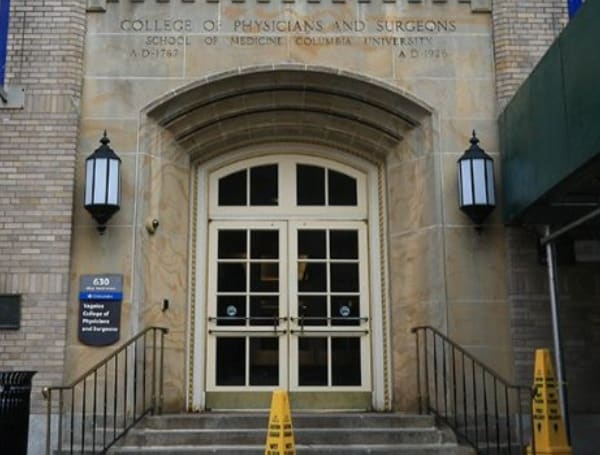A federal judge in the Southern District of New York Monday denied a preliminary injunction and dismissed a lawsuit brought by the American Association of University Professors (AAUP) and the American Federation of Teachers (AFT) against the United States Department of Justice, Department of Education, Department of Health and Human Services, and other federal agencies.
The lawsuit sought to compel the federal government to release approximately $400 million in terminated grants and contracts to Columbia University and prevent future funding interference.
RELATED: Columbia University’s Accreditation Status Jeopardized Amid Federal Civil Rights Violations
U.S. District Judge Mary Kay Vyskocil ruled that the plaintiff organizations lacked standing to bring the case, emphasizing that the federal funding at issue was awarded to Columbia University, not to the unions or their individual members.
Judge Vyskocil stated, “Federal courts do not exercise general legal oversight of the . . . Executive Branch,” and that a proper case or controversy exists only when a plaintiff demonstrates a concrete injury directly traceable to the defendant’s conduct and redressable by a favorable judicial decision.
The lawsuit, filed on March 25, 2025, by the AAUP and AFT, alleged that the termination of funding to Columbia University was an unconstitutional attempt by the Trump administration to “control the thought” of “faculty and students” and an enforcement action based on Columbia’s alleged failure to address antisemitism on campus, without following proper procedural requirements.
The plaintiffs sought to restore the terminated $400 million and enjoin any future interference with over $5 billion in active federal grants and contracts to Columbia.
RELATED: NIH Reportedly Freezes All Remaining Grants To Columbia Amid Ongoing Antisemitism Dispute
However, Judge Vyskocil noted that Columbia University, the direct recipient of the funding and the entity whose financial relationship with the government was at stake, was “conspicuously absent” from the lawsuit. Evidence presented to the court indicated that Columbia chose to negotiate with the government and pursue administrative appeals rather than litigate. Columbia had even informed some of its faculty, including members of the plaintiff unions, about the appeals process for terminated grants.
The court’s findings of fact detailed that the National Institutes of Health (NIH) and Department of Education (DOE) awarded grants directly to institutions like Columbia, not to individual professors or academic staff.
The termination letters from these agencies cited reasons such as the funding no longer “effectuat[ing] agency priorities” or being terminated “for the convenience of the Government,” based on concerns that the grants were not serving the “best interests of the United States.” For instance, the NIH specifically stated that “Columbia’s ongoing inaction in the face of repeated and severe harassment and targeting of Jewish students” was “plainly inconsistent with NIH’s priorities.”
RELATED: Columbia University Found In Violation Of Federal Civil Rights Act Against Jewish Students
The opinion highlighted that Columbia University itself, after demands from executive agencies, announced a series of reforms related to combating discrimination, harassment, and antisemitism on campus. Columbia stated these reforms had been “under review and work and development for many months” prior to the government’s demands, suggesting independent action.
Regarding the plaintiffs’ claims of chilled speech and academic freedom among their members, Judge Vyskocil found these to be “purely subjective and speculative,” not rising to the level of a cognizable injury for standing purposes. The court noted that communications from Columbia to its faculty, not the federal agencies, advised members that their research might not align with new administration executive orders concerning “DEI, gender ideology and climate/environmental justice.”
READ: Columbia University Tries To Walk Back Agreement With Trump Admin In Private Faculty Meetings
The judge also pointed out that Title VI of the Civil Rights Act, often cited by the plaintiffs, does not explicitly mention religion as a protected characteristic, which complicated the plaintiffs’ argument that the government was bound by Title VI’s procedural requirements for terminating funding based on alleged antisemitism.
Ultimately, the court concluded that the AAUP and AFT failed to demonstrate a concrete injury to themselves or their members that was fairly traceable to the defendants’ actions and redressable by the court. The case was dismissed without prejudice, meaning the plaintiffs could refile if they can address the standing issues.
Please make a small donation to the Tampa Free Press to help sustain independent journalism. Your contribution enables us to continue delivering high-quality, local, and national news coverage.
Connect with us: Follow the Tampa Free Press on Facebook and Twitter for breaking news and updates.
Sign up: Subscribe to our free newsletter for a curated selection of top stories delivered straight to your inbox.
